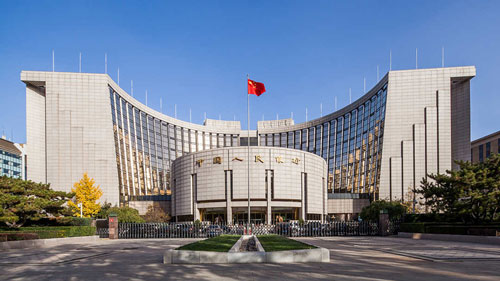China’s central bank continued to inject funds into the financial system through open market operations on Wednesday.
The People’s Bank of China said on its website that it has conducted 4 billion yuan (about 575.33 million U.S. dollars) of seven-day reverse repos at an interest rate of 2 per cent.
The move is aimed at keeping liquidity reasonable and ample in the banking system, according to the central bank.
A reverse repo is a process in which the central bank purchases securities from commercial banks through bidding, with an agreement to sell them back in the future.— Xinhua










